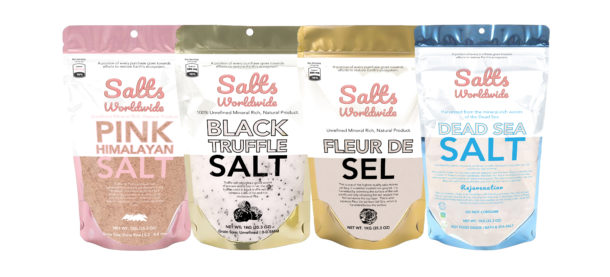Sea salt is a type of salt produced by the evaporation process during ocean currents. It’s use as a seasoning on food, cooking, cosmetics, baking and for preserving edible food. It’s also known as black sea salt, sand sea salt or marine rock salt. Unlike mined salt, production of black sea salt dates back to prehistoric times. It can be found throughout the world from sedimentary rock in coastal areas to islands in the Pacific Ocean. Today it is considered a healthy alternative to table salt, which can cause high blood pressure and other health problems.
The black variety of this sea salt contains iodine, magnesium, sodium, calcium, iron, sulfur, zinc, manganese, chromium, strontium, potassium, silicon, and zinc. Although these minerals are naturally present in seawater, modern farming methods have stripped some of these minerals from the rocks resulting in a saltier water. It’s important to note though that these minerals can’t be listed on the ingredients label since they are not naturally occurring. For example, iodine is a mineral found in sea birds and other seafood and must be consumed through diet or through a water filtration system. There are no known adverse effects from consuming the minerals contained in Dead Sea salt.
Pink sea salt is a variety of the black sea salt that’s grown on dry, rocky areas in the foothills of the Andes Mountains. Harvested from areas near Peru, Bolivia, Chile, and Argentina, this pink variety of sea salt was first used by the Incas. It’s rich flavor allows for delightful treats like cookies and cakes. Similar to marine rock salt, production methods have not changed much over the years. But this pink version is less processed than its black sea salt counterparts, which is why it is often less expensive.
Himalayan salt comes from the Himalayan Mountains. This type of sea salt has a very intense mineral content that evokes the warmth and purity of the famous Himalayan valley. It’s naturally white with a slightly smoky color. The table salt from this mountain is often the most expensive variety of sea salt available. It’s grown in the valleys themselves and harvested with traditional harvesting methods. Many people choose to purchase this Himalayan salt straight from the mountains because it has the most natural and clean flavor.
Basalt table salt comes from the Silver River Valley in Nevada. This salt offers a unique product because it contains traces of iron as well as silver, tin, copper, and gold minerals. When table salt is sprinkled on food, it helps bring out the flavor of certain foods like liver, cheese, and wine. Since it contains trace amounts of those metals, it may also help boost your immunity against colds and flu. However, it’s important to note that due to its lack of an ionic component, it does not improve blood circulation.
Ocean table salt is created by crushing large pieces of dead seaweed and then mixing it with coarse rock salts. While the texture is similar to that of sea salt (which is the thing you add to your sea food), it does not have the same properties and therefore will not improve your blood pressure or enhance your immune system. It can also help decrease respiratory infections. However, it’s important to note that the Dead Sea salt contains a large amount of sulphates which can cause irritating skin conditions such as eczema and hay fever. Due to its high sulphates content, it should not be consumed regularly.
Rock salt from the Caspian and Black seas can be used to supplement your diet. These sea salts contain magnesium, potassium, sodium, and iron minerals. This table salt can be used for bread making, meat seasoning, bakery items, and confectionary.
Himalayan sea salt is extracted from the foothills of the Himalayas in India. It contains calcium, sulphur, and potassium, which are all vital in maintaining good health. The minerals found in this salt include calcium, sodium, iron, phosphorous, manganese, and selenium. Due to its properties, Himalayan sea salt can help increase blood flow, regulate hormonal levels, and reduce inflammation and pain.



